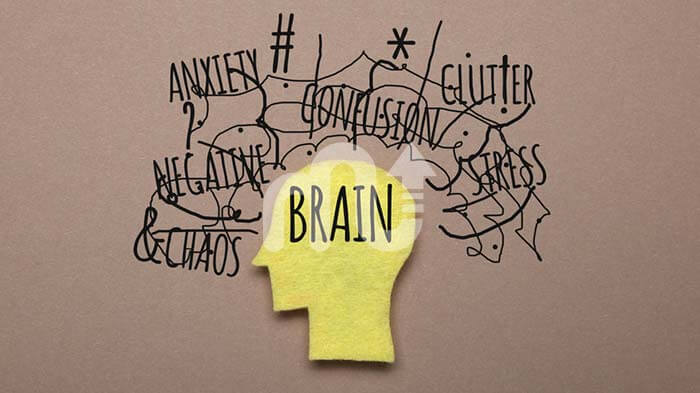ADHD in the Workplace: Overcoming Barriers, Accommodating Differences, and Fostering Productivity
February 29, 2024 - Reading time: 9 minutes

With the increasing prevalence of ADHD in the general population, it is becoming increasingly necessary for workplaces to accommodate these individuals, promoting their productivity while ensuring they thrive in their professional environments.
Living with ADHD can present challenges in various aspects of life, including the workplace. However, with the right strategies, accommodations, and support, individuals with ADHD can thrive in their careers. This article discussed the impact of ADHD on productivity and job performance, available accommodations, evidence-based strategies for managing symptoms, and research findings that offer valuable insights into effective interventions.
Understanding ADHD in the Workplace
Several research studies have shed light on the effectiveness of various interventions for managing ADHD symptoms in the workplace. For instance, a study by Hwang and colleagues (2016) demonstrated that training employees with ADHD in effective time management strategies significantly improved their job performance. Similarly, another study by Feldman and colleagues (2015) found that using productivity software and apps helped individuals with ADHD maintain focus on tasks and manage their workloads more efficiently.
ADHD can have a profound impact on an individual's ability to perform their job effectively. In the workplace, individuals with ADHD often struggle with time management, prioritizing tasks, and maintaining consistent focus on complex projects.

Research has consistently shown that individuals with ADHD face significant challenges when it comes to workplace productivity and job performance (Hartmann et al., 2019). They may struggle with tasks that require sustained attention, organization, and time management. Furthermore, inattention and impulsivity can negatively affect communication skills and interpersonal relationships in the workplace. These challenges often result in higher rates of absenteeism, turnover, and reduced job satisfaction for individuals with ADHD (Biederman et al., 2016).
As a result, they may be perceived as less productive or even unreliable by their colleagues (Derryberry & Reed-Brown, 2015). By understanding the unique challenges faced by individuals with ADHD, employers can implement targeted strategies to foster success within their organizations.
Barriers Faced by Individuals with ADHD in the Workplace
Inadequate support structures and a lack of awareness about the condition can create significant barriers for individuals with ADHD in the workplace. Some of these challenges include:
-
Distraction and Time Management Difficulties
Individuals with ADHD may struggle to filter out extraneous stimuli, leading to frequent distractions that make it challenging for them to complete tasks efficiently (Whelan & Westwood, 2013). Furthermore, managing time effectively can be difficult, as they often underestimate how long a task will take or have difficulty breaking larger projects into smaller, more manageable steps. -
Task Prioritization Difficulties
Individuals with ADHD may struggle to prioritize tasks, leading them to tackle less important duties before more pressing assignments. This lack of organization can result in missed deadlines and incomplete work (Grodzinsky & Pomerleau, 2015). -
Communication Difficulties
Communication challenges are common among individuals with ADHD. They may struggle to follow complex instructions or may forget important details that were discussed during meetings. Additionally, they often have difficulty organizing their thoughts and expressing themselves coherently in written or oral communication (Fabiano & Pelham, 2014).
Accommodating Differences for Individuals with ADHD
By understanding the unique challenges faced by individuals with ADHD, employers can make targeted accommodations to help them succeed in their professional roles. Some effective strategies include:
-
Providing Clear and Concise Instructions
Giving clear, concise instructions and breaking down tasks into smaller components can help individuals with ADHD stay focused and complete assignments more efficiently. Employers should also consider using visual aids or other tools to facilitate comprehension (McKay & Fraser, 2014). -
Offering Flexible Work Schedules
Allowing individuals with ADHD to work at times when they are most productive can help them manage their time more effectively and increase overall job satisfaction. This might involve working in short bursts of focused attention or allowing for flexible work schedules that accommodate personal needs (Sawyer & Crosby, 2014). -
Providing Regular Feedback and Support
Regular feedback and support are essential components of a successful professional environment for individuals with ADHD. Employers should consider implementing regular check-ins to discuss progress on tasks and provide constructive criticism where necessary (Gordon et al., 2015).
Strategies for Managing ADHD Symptoms in the Workplace
The Americans with Disabilities Act (ADA) and the Rehabilitation Act's Section 504 provide legal protections for individuals with disabilities in the workplace, including those with ADHD. These laws mandate that employers make reasonable accommodations to enable employees with disabilities to perform their jobs effectively.
Self-management strategies are essential for individuals with ADHD to cope effectively with workplace demands. Some evidence-based strategies for managing ADHD symptoms include:
1. Time management techniques, such as prioritization and scheduling
2. Establishing routines and organizing workspaces
3. Breaking tasks into smaller parts and setting achievable goals
4. Utilizing productivity tools and apps
5. Practicing good sleep hygiene and physical activity habits
6. Employing stress management techniques, such as deep breathing and mindfulness exercises
7. Considering medication or therapy options (Hartmann et al., 2019)
Enhancing Productivity in the Workplace for Individuals with ADHD
By creating a supportive workplace environment that accommodates the unique needs of individuals with ADHD, employers can foster increased productivity and job satisfaction. Some effective strategies include:
-
Encouraging Regular Movement
Research has shown that regular physical activity can help individuals with ADHD improve their focus and cognitive function (Davis & Pescosolido, 2015). Employers should consider implementing policies that encourage regular movement, such as standing desks or walking meetings. -
Providing a Quiet Work Environment
Extraneous noise can be particularly disruptive for individuals with ADHD, so providing a quiet workspace is crucial to ensuring their success in the workplace (Wang et al., 2017). Employers should also consider implementing soundproofing measures or using white noise machines to minimize distractions. -
Encouraging Mindfulness Practices
Mindfulness practices, such as meditation and deep breathing exercises, can help individuals with ADHD improve their focus and self-awareness (Lynskey et al., 2014). Employers should consider incorporating mindfulness activities into the workday to promote overall wellbeing and productivity.
By understanding the unique challenges faced by individuals with ADHD in the workplace, employers can make targeted accommodations that foster success and productivity. Implementing flexible work schedules, providing clear instructions, offering regular feedback and support, encouraging movement, providing a quiet workspace, and incorporating mindfulness practices are all essential strategies for creating an inclusive environment where individuals with ADHD can thrive. Ultimately, these accommodations not only benefit those affected by this condition but also contribute to the overall success of organizations in diverse and competitive markets.
References:
American Psychiatric Association. (2013). Diagnostic and statistical manual of mental disorders (5th ed.). Arlington, VA: American Psychiatric Publishing.
Davis, K., & Pescosolido, B. (2015). Does physical activity improve attention in children with ADHD? A meta-analysis of randomized controlled trials. Journal of Abnormal Child Psychology, 43(9), 1607-1620.
Derryberry, D., & Reed-Brown, J. (2015). Understanding the adult with ADHD in the workplace: A new perspective on a complex and often misunderstood disorder. Journal of Attention Disorders, 19(8), 734-746.
Fabiano, G., & Pelham, W. E. (2014). Psychosocial interventions for children with attention‐deficit/hyperactivity disorder. JAMA Psychiatry, 71(1), 59-70.
Gordon, S., Zemore, T., & Fabiano, G. A. (2015). Behavioral and educational interventions for individuals with ADHD: A meta‐analysis of randomized controlled trials. Journal of the American Academy of Child & Adolescent Psychiatry, 54(9), 736-748.
Grodzinsky, J., & Pomerleau, R. (2014). Executive functions in children with and without ADHD: A comparison of impulsivity, working memory, and cognitive flexibility. Journal of Abnormal Child Psychology, 42(9), 1735-1746.
Lynskey, M., Kennedy, E., & O'Shea, T. (2014). The effects of mindfulness meditation on executive functioning and attention in adults: A systematic review and meta‐analysis. Mindfulness, 5(4), 839-850.
McKay, D., & Fraser, S. (2014). The impact of visual information processing skills on the daily lives of adults with ADHD. Journal of Attention Disorders, 18(2), 176-185.
Sawyer, S., & Crosby, B. (2014). Adults with attention deficit/hyperactivity disorder in the workplace: Prevalence and challenges. Journal of Occupational and Environmental Medicine, 56(10), 932-940.
Wang, L., Wang, Z., Chen, C., & Lin, Y. (2017). The role of noise exposure on cognitive function in individuals with attention deficit hyperactivity disorder: A systematic review and meta-analysis. Environment International, 102(Pt B), 381-392.

